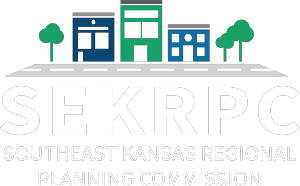What We Do
SEKRPC provides professional development, planning, and management services to local governments, assisting in the administration of local programs and projects. We help individuals, companies, and government agencies with finance packaging, advice, and procedures.
Why It Matters
Our resources support community improvement, economic development, and other urgent needs. We help create and retain jobs while increasing services available in southeast Kansas communities.
How to Get Started
Contact us today to see how we can help your county, city, or company. We offer grant writing services (CDBG, EDA Public Works) and revolving loan fund programs for businesses in our region.
Programs and Services
-
The SEKRPC Staff is knowledgeable and trained to work with communities on community improvement such as Community Development Block Grant application and administration. Learn more about the guidelines, how to apply, and other information about CDBG grants here.
-
SEKRPC also offers their help with applications and administration on CDBG Downtown Commercial Rehabilitation Program grants. The purpose of the CDBG Downtown Commercial Rehabilitation Program grants is to help cities improve the quality of their downtown commercial districts by assisting private property owners in the rehabilitation of blighted structures. Read more about CDBG Downtown Commercial Rehabilitation Program grants here.
-
The CDBG Economic Development funding program was developed to assist businesses in your community that create or retain jobs by offering gap financing for working capital or infrastructure projects. Read more about the CDBG Economic Development funding program here.
-
The SEKRPC has created a revolving loan fund for private enterprises, public and non-profit small businesses located within the 12 county region in which we serve. Learn more about the SEKRPC revolving loan fund and its guidelines here.
-
The SEKRPC has been awarded $520,000.00 from the EDA to distribute through a revolving loan fund to help with post pandemic recovery efforts. Learn more about the CARES Act revolving loan fund and its guidelines here.
-
USDA IRPThe purpose of the SEKRPC IRP RLS program is to assist with financing businesses and economic/community development activity that support direct/indirect creation or retention of jobs in rural communities in Southeast Kansas.

